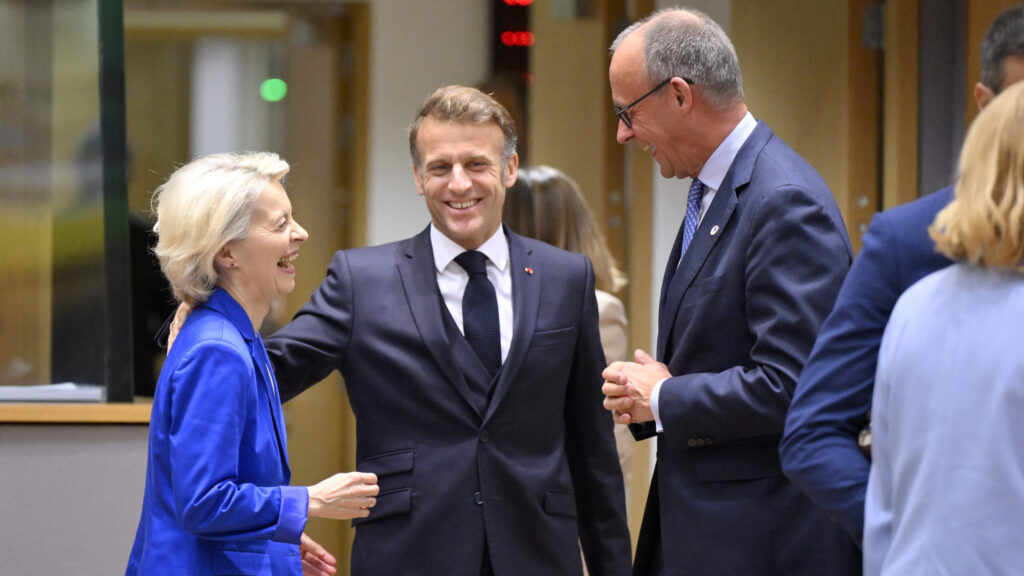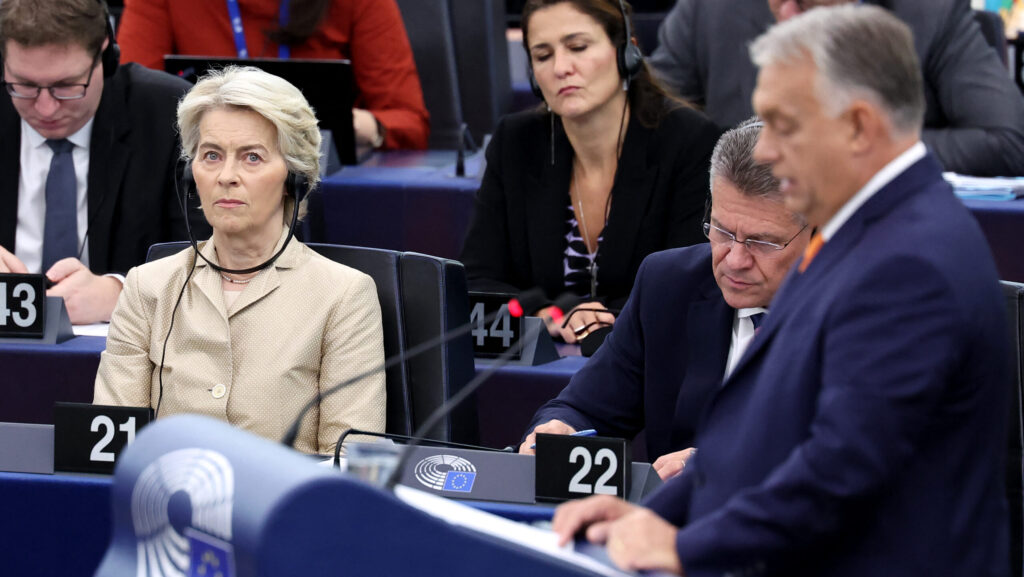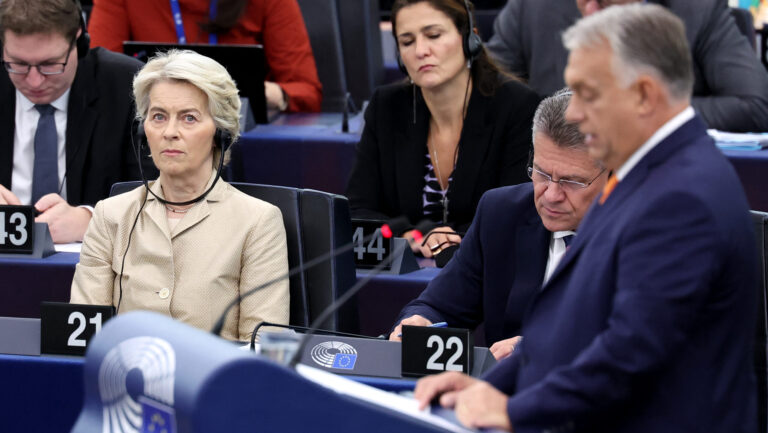In a roundtable discussion held on Monday in Budapest, co-organized by the Nézőpont Institute and Mandiner, analysts agreed that Fidesz–KDNP emerged as the clear winner of Sunday’s elections for the European Parliament and local government. They noted that this result would likely have translated into a two-thirds majority in a parliamentary election.
At the event, featuring Miklós Szánthó, Director General of the Center for Fundamental Rights, Ágoston Sámuel Mráz, head of Nézőpont Institute, Zoltán Lomnici Jr, Scientific Director of the Századvég Foundation, and Márton Békés, Director of the 21st Century Institute, it was highlighted that achieving such a strong result amid challenging circumstances, including wartime conditions, was significant for Hungary’s ruling parties. They asserted that the election results confirmed Hungary as a right-leaning country.
Ágoston Sámuel Mráz presented model calculations following the vote, revealing that if the same results had been for a parliamentary election, Fidesz–KDNP would have secured 135 seats, the Tisza Party 45 seats, the left-wing alliance 10 seats, and Mi Hazánk 8 seats, thus giving the ruling parties a two-thirds mandate once again.
Miklós Szánthó added that with the victory in the current local elections, the Hungarian right has achieved 16 electoral successes since 1990. He noted that Hungary’s ruling parties also achieved the best result continent-wide.
Nationally, Fidesz–KDNP received 47 per cent of the vote, surpassing their 2019 local election performance,
winning in all counties—some with over 60 per cent—and performing well in cities with county rights and virtually maintaining their five-year-old results in Budapest. Szánthó highlighted that given that Budapest is not considered a right-leaning city, better results could not have been expected, and he recalled that the mayoral race ended in a stalemate, which he said proved that Alexandra Szentkirályi’s withdrawal was a good decision. He disagreed with Péter Magyar’s assertion of a ‘political landslide’ in Hungary, suggesting that the left-wing electorate voted for the ‘new left’ represented by the Tisza Party, while the DK–MSZP–P(árbeszéd) alliance’s 8 per cent reflected the failure of the ‘Gyurcsány wing’ of the left.
Nézőpont
MODELLSZÁMÍTÁS: AZ ORSZÁGGYŰLÉSI MANDÁTUMOK KÉTHARMADÁT MEGSZEREZTE VOLNA A FIDESZ JÚNIUS 9-ÉN IS A Fidesz-KDNP nyerte a szavazatok 44,61 százalékos arányával az európai parlamenti választásokat,…
Szánthó emphasized that the European Parliament elections demonstrated a clear preference for peace among Hungarian voters, adding that the left lost mandates at the European level for the same reason. He asserted that the right-wing bloc is now the second-largest force in the European Union after the People’s Party.
Ágoston Sámuel Mráz remarked that as long as the opposition remains divided and the ruling parties enjoy high support, a two-thirds majority for Fidesz–KDNP is likely in any election. He noted that in the 2022 parliamentary elections, with a much higher turnout, the united opposition received fewer votes than the ruling parties did in the recent EP elections.
Regarding the mayoral election, Mráz opined that the majority voted against the incumbent mayor, and the inclusion of the Momentum party in the municipal assembly would not have altered the government parties’ results, as it would have taken a mandate away from the Tisza Party, not Fidesz. He highlighted that Fidesz clearly won the municipal assembly elections and warned that if Péter Magyar and Fidesz insist on not cooperating with the ‘old left,’ the capital could become unmanageable.
On the broader European results, Mráz believed they could help avoid the escalation of the Ukrainian conflict.
Zoltán Lomnici Jr also underscored Fidesz’s significant victory at the European level and noted the advances of the right in France, Germany, and Spain.
Lomnici anticipated a prolonged legal process due to the close mayoral race results and pointed out that those opposing Fidesz were largely unsuccessful. He predicted that the Mi Hazánk (Our Homeland) party would become even more radical in the near future and supported the decision of the moderate right not to collaborate with it.
Márton Békés partly attributed Fidesz’s loss in a few mayoral elections in some counties and small- to medium-sized cities to personal issues, as well as mood shifts, but he stressed that the ruling parties won a significant victory overall, with unprecedented support for Fidesz-KDNP in an EP election. He expressed concerns over the Tisza Party’s funding sources, suspecting foreign micro-donations might play a role.
He stressed that the two million votes received and the secured mayoral and assembly seats could provide Fidesz with sufficient strength to defend the country’s sovereignty, adding that ‘the shadow government has become a shadow opposition,’ referring to EP list leader and shadow prime minister of DK Klára Dobrev having dissolved her shadow government in the wake of the elections. Békés highlighted that Ferenc Gyurcsány’s party, DK was ousted from opposition leadership, with the DK’s earlier push for early elections failing miserably. He concluded that Fidesz has enjoyed unparalleled support for 14 years, while the left has been unable to present a viable alternative ever since 2010.
Related articles:







